National Farmers Federation’s green energy warning amid fears over $750 million Meadow Creek plan in Victoria
Australia ‘cannot afford’ to blanket prime agricultural land with green energy projects, says new National Farmers Federation chief amid mounting concern over a $750m, 570ha proposal in Victoria.
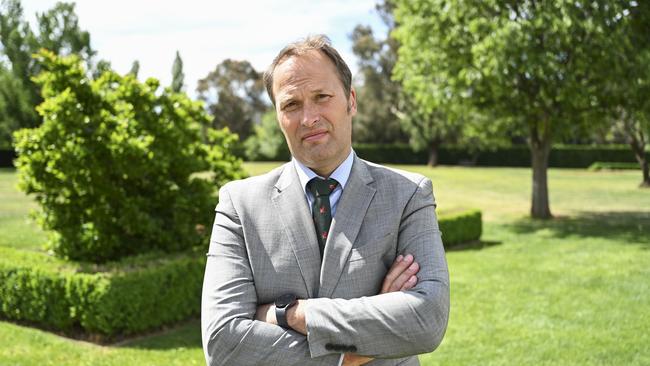
New National Farmers Federation president David Jochinke has warned Australia “cannot afford” to blanket prime agricultural land with energy projects.
His call comes amid mounting concern over a proposal to build a $750m 570ha solar factory on valuable farmland at Meadow Creek, in the King River catchment near Milawa in northeast Victoria.
Alarm over the planned solar farm, which at 330 megawatts would be one of Australia’s largest, has prompted Victorian upper house MP Rikkie-Lee Tyrrell to put forward an amendment to the Planning and Environment Act, which is set to be debated in state parliament this week.
The One Nation MP’s proposal would make it mandatory for government to consider soil and waterway protection when determining whether to grant a permit for a solar energy generation facility.
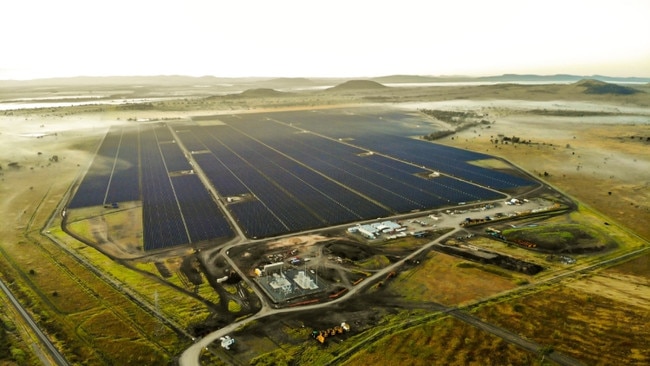
Speaking about the Meadow Creek project and similar proposals on prime agricultural land, Mr Jochinke, who was elected NFF president last week, said farmers and regional communities weren’t opposed to renewable energy projects.
“They’re just sick of being left out of these planning conversations. We want to be better consulted so we can find solutions where everyone wins,” he said.
“Alarmingly, in the past 30 years, Australia has lost over 15 per cent of its farmland. Over the next 30 years, we can’t afford to lose another 15 per cent if we’re to feed a growing population here and abroad in a changing climate. The project at Meadow Creek is just one of many that has pushed our farmers to the edge and it’s exactly why we’ve included this as one of our top five biggest issues the NFF is taking a stand on in our Keep Farmers Farming campaign.”
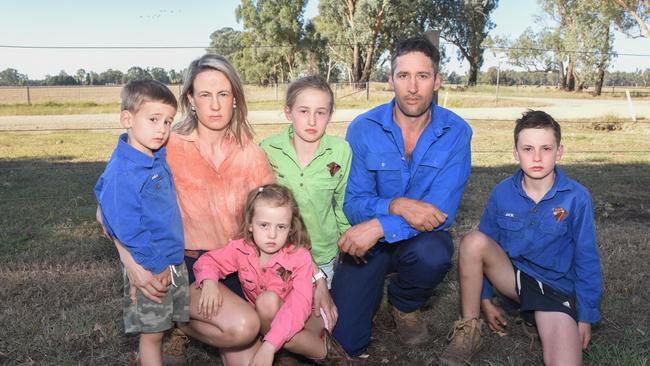
Debate over the appropriate location for renewable energy projects is likely to intensify as federal and state governments strive to meet ambitious targets, with Victoria aiming for 95 per cent renewable energy by 2035.
Meadow Creek Agricultural Community Action Group spokesman John Conroy, whose family’s Bobinawarrah cattle farm neighbours the proposed solar factory, said the key concerns of locals included the loss of highly productive, valuable farmland in a key food and wine tourist region, elevated lead levels, the fact that run-off from the site ultimately flows into the King River, which supplies the city of Wangaratta with water, fire risk and the associated inability of neighbours to obtain liability insurance, and vegetation, habitat and species loss.
“We’re not advocating for halting renewable power generation efforts. We’re calling for foresight in preserving vital agricultural and water catchment assets, and for genuine engagement with local communities” Mr Conroy said.
He said the Meadow Creek proposal was a “reckless use of prime agricultural land that is nestled in a special water catchment supply area for Wangaratta.”
“It’s a huge industrial site covered in electrical components, in a bushfire zone. At some stage over its lifetime, it will burn and have a disastrous environmental impact on local waterways and Wangaratta’s domestic water supply.”
Ms Tyrrell said her bill was not “anti-solar power generation”, but was aimed at ensuring prime agricultural land was protected.
“I support responsible renewable energy projects, but we must take a cautious approach to make sure such projects are established on suitable land,” she said.
“My bill is one of common sense and simply legislates the existing departmental considerations regarding where future solar farms should be built.”
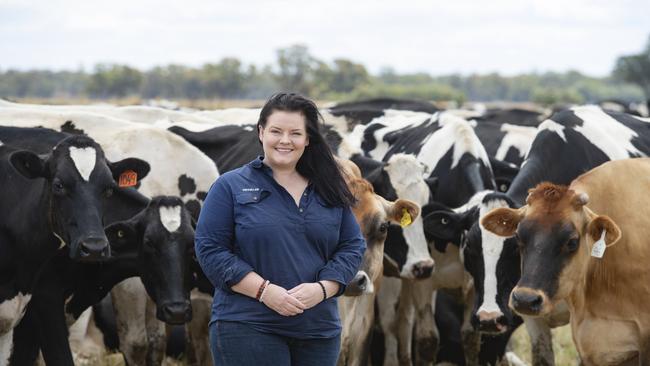
A Victorian government spokesman said the bill showed Ms Tyrrell “isn’t serious about climate action and is misleading Victorians by making it seem like we have to choose between transitioning to renewable energy or protecting our farmers”. “We can do both,” the spokesman said.
A spokeswoman for the Meadow Creek Solar Farm said the project was “progressing through detailed design and planning.”
“We’re completing comprehensive technical assessments to understand the potential impacts of the project, including on agricultural land use,” the spokeswoman said.
“When the planning application is on display there will be further opportunity for community to share their views on the proposal to be considered by the Minister for Planning.”
More Coverage
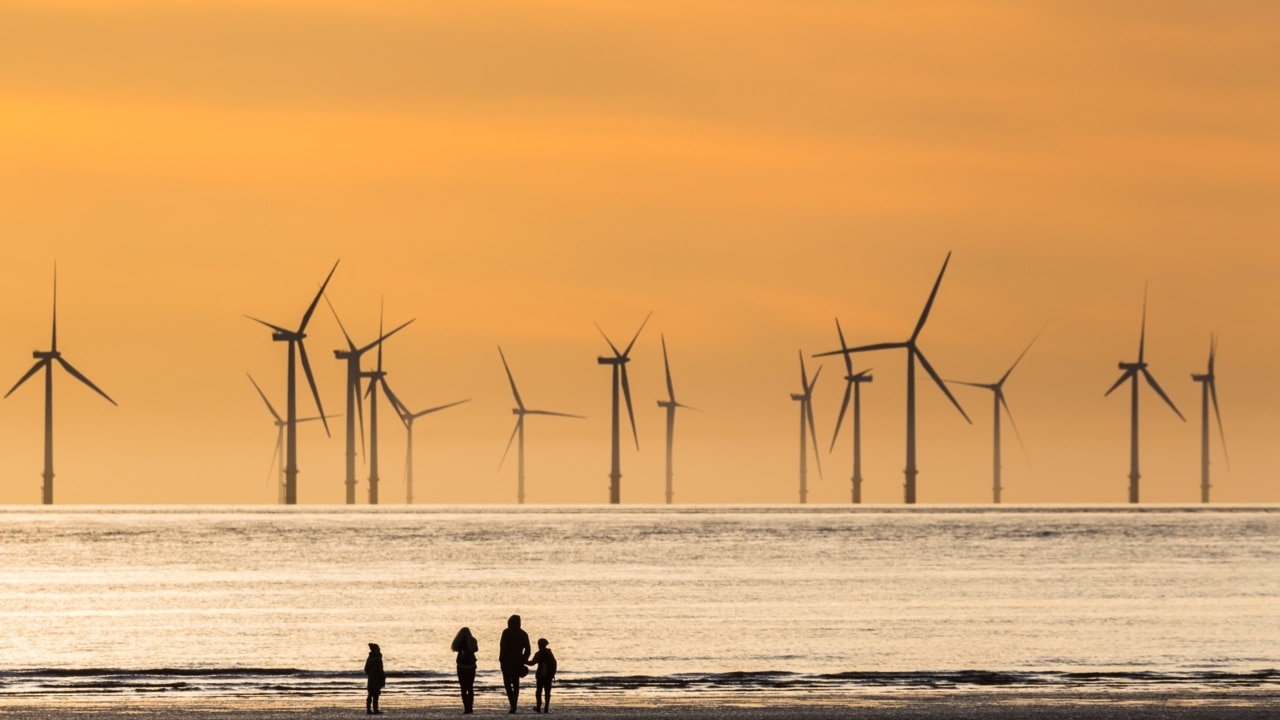


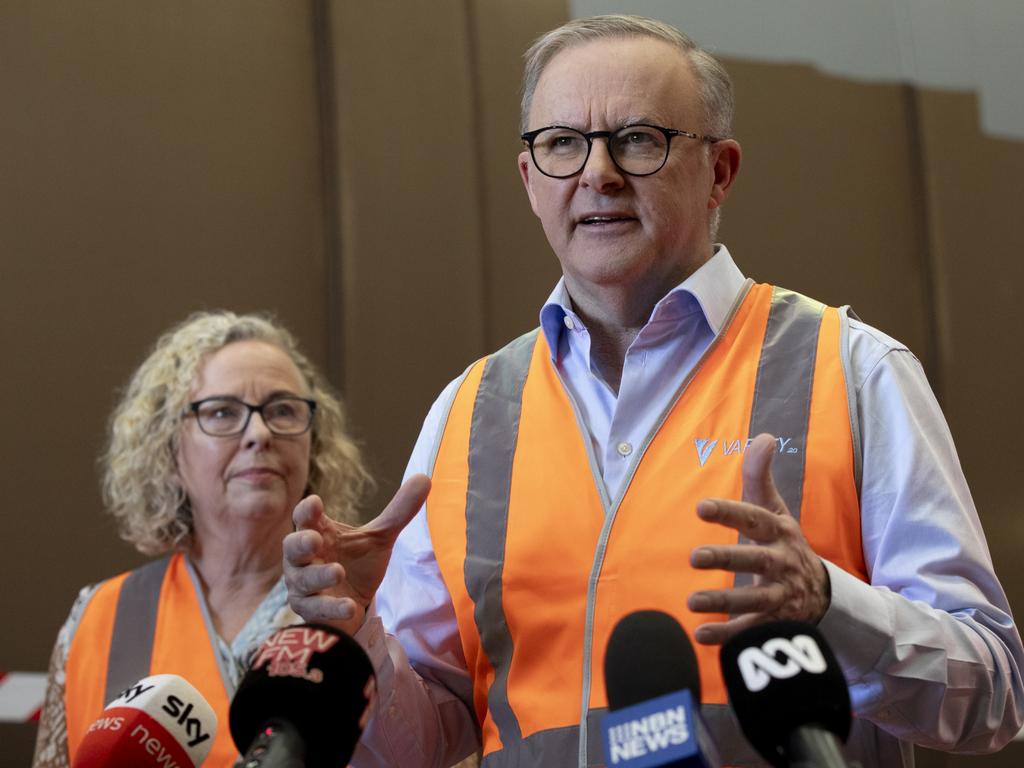





To join the conversation, please log in. Don't have an account? Register
Join the conversation, you are commenting as Logout